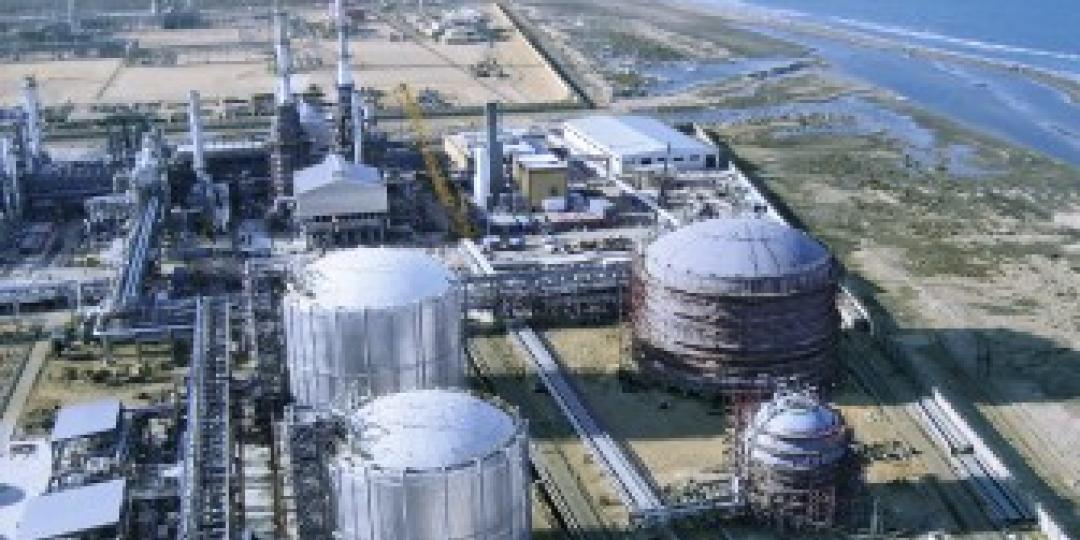Thyssenkrupp Uhde has developed holistic, cost-effective and efficient liquid fuel storage solutions to meet Africa’s ongoing need for the responsible and safe storage of this critical resource. The company incorporates engineering expertise, technology know-how and experience in fuel projects into the design of its innovative tank farm solutions.
Nithesh Mohun, a senior sales engineer at Thyssenkrupp Uhde, explains that while the ‘go green’ and ‘de-fossilisation’ drives are in high gear worldwide, the immediate need for fuel resources in Africa and indeed in South Africa, still provides a requirement for the storage and distribution of liquid fuel.
“First-world countries are moving away from fossils fuels and adopting green technologies and renewable alternatives quickly, but the scenario in Africa is different. While green initiatives are underway in Africa, the immediate need for liquid fuels, driven largely by population growth and industrialisation, is expected to continue for some time. This growing demand, combined with an expected increase in imported refined fuel, dictates the need for more independent storage facilities.” Mohun points to the direct correlation between growing populations and an increased need and demand for water, energy, infrastructure, agriculture, transport, etc.
“Tank farms are essential components in the value chain. They present safe bulk liquid storage solutions and allow for distribution of the large volumes of liquid fuel that’s required to power passenger and commercial vehicles, machinery and equipment. We see great potential for our tank farm solutions in many African countries with growing populations and industrialisation including South Africa, Ethiopia, Ghana, Kenya, Nigeria, and Tanzania.” There is every likelihood that the African continent will see an increase in refined fuel imports.
Mohun explains: “This shift can be attributed to the fact that we are seeing ever stricter environmental legislation and ageing infrastructure of refineries in South Africa and the rest of Africa. Furthermore, imported fuel is produced in larger technologically advanced overseas refineries at lower costs and smaller environmental footprints. This makes it a much more attractive option.” It follows that an increase in refined fuel imports will in turn drive interest in storage and distribution from smaller independent market players.
“As these players do not have access to funding when compared to large companies, they need an option that will enable them to determine the project viability of fuel storage facilities. This will give them the ability to move forward without a high upfront investment cost.”
Recognising that this sector not only needs but is also ready for a cost effective, efficient solution, the firm took an innovative approach in the development of its tank farms.
“We revisited our standard engineering expertise to be able to deliver an optimized holistic offering to customers,” explains thyssenkrupp Uhde’s proposals engineer, Yurisha Singh.
“By developing an automated standardised tool, we are able to rapidly deliver front end loading (FEL) to our traditional EPC (engineering, procurement and construction) portfolio.”
In the pre-feasibility (FEL 1) and feasibility (FEL 2) phases, the company delivers a tariff target-based tank farm solution to ensure customer competitiveness.
“Our focus is on reducing the engineering time and effort required to develop a product so that we can get it deployed as quickly as possible, all to the ultimate benefit of the customer,” states Singh. “Owing to our smart engineering, customers will be able to determine a basic design as well as a costing of their tank farms without large upfront investment costs. Another added value is that because it is automated, the design can be done quickly. This forwarding-thinking approach was a natural next step for us, given Thyssenkrupp Uhde’s reputation for innovative product development and specialist engineering.”
Although the liquid fuel storage tool is a new offering from Thyssenkrupp Uhde, the solution is based on the company’s experience in numerous successfully executed fuel projects. The solution is designed to the strict standards of the fuel industry uses industry standards and incorporates technical expertise gathered from experienced industry specialists.
“We have numerous references for blue-chip fuel projects,” affirms Singh. She concludes: “In addition to the successful execution of many refinery projects for several of the country’s leading refineries, Thyssenkrupp Uhde’s South African team has also completed large terminal and pipeline projects.”
Contact Daniel Martinho, Thyssenkrupp Uhde, Phone 083 378-9650, daniel.martinho@thyssenkrupp.com , https://engineered.thyssenkrupp.com















